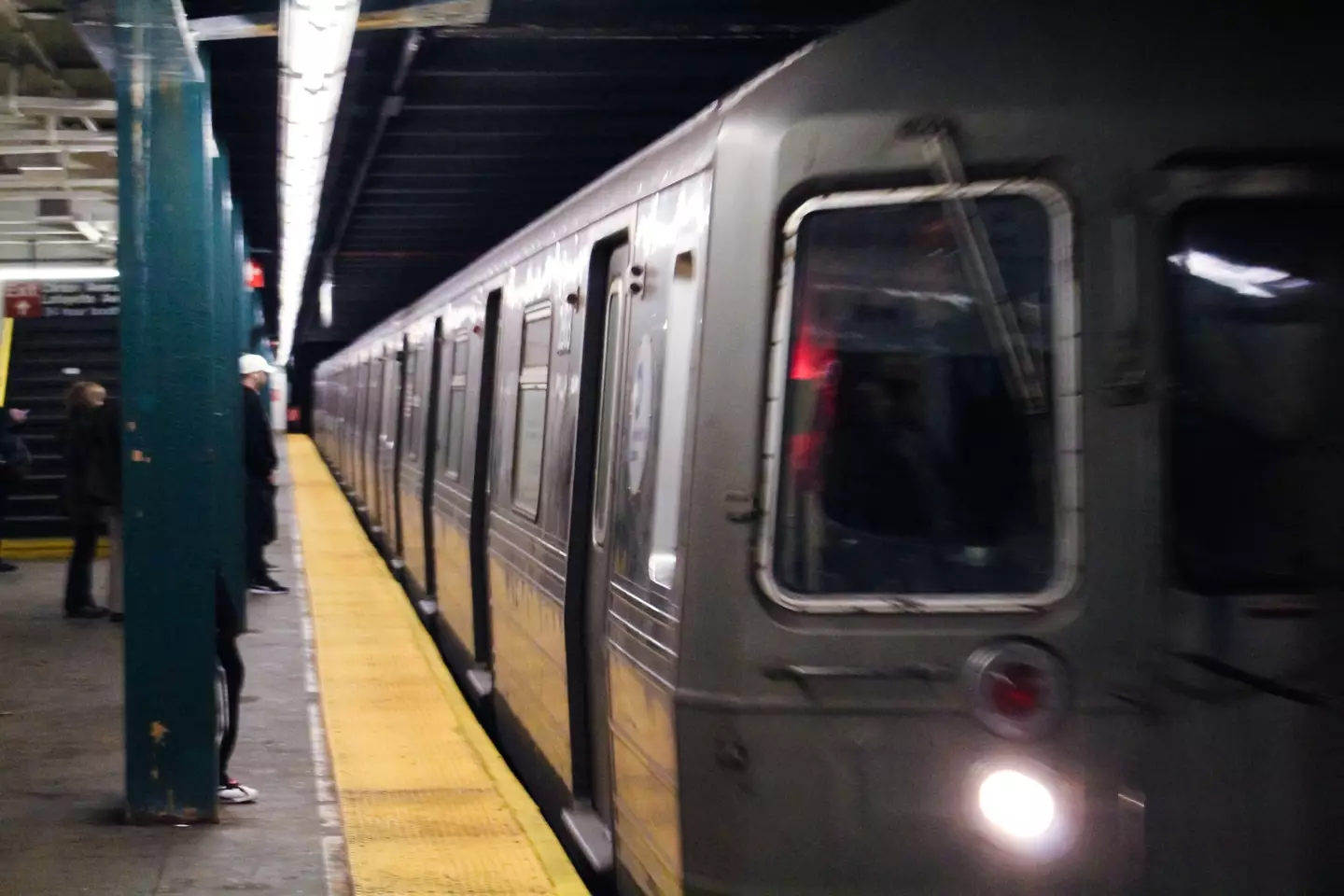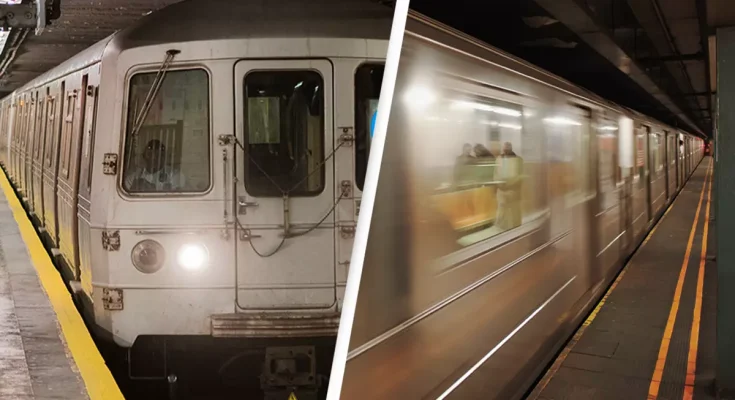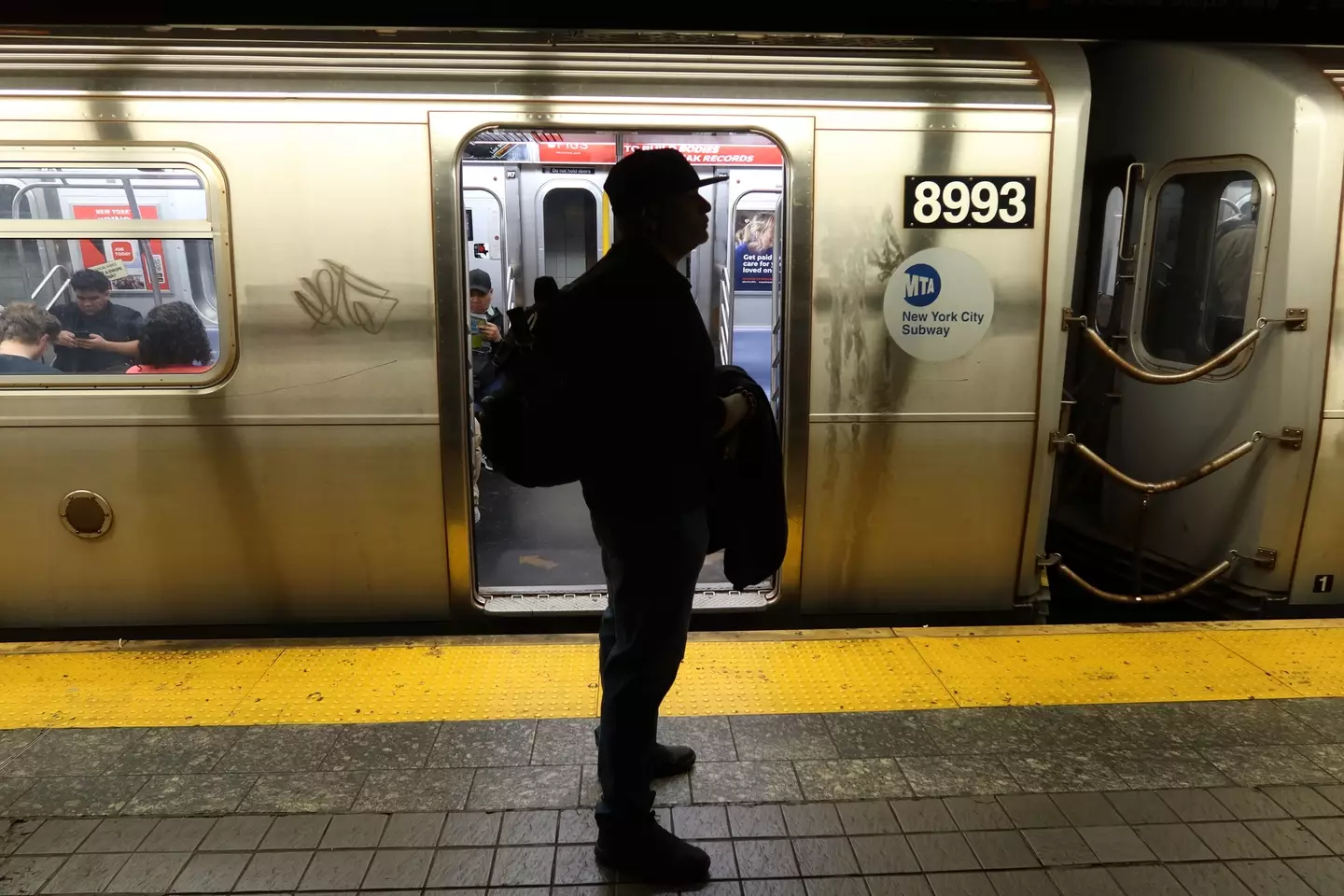However, after filing a lawsuit against the MTA (Metropolitan Transportation Authority) his lawyer, Ira Newman, insisted that there was considerable time for the train operator to stop and prevent a collision.
A man was left with life-changing injuries after being run over by a New York subway train (Gary Hershorn/Getty Images)
Newman said: “This is a matter of public safety. This accident never would have happened had the train operator timely pulled an emergency brake according to the MTA’s own rules and regulations when seeing people alerting him to someone on the tracks.”
The Brooklyn resident won his lawsuit against the MTA late last month, meaning they could have to pay him a total of $90 million.
Powell had fallen at the end of the tracks, away from where the train enters, meaning the driver had ample time to come to a complete stop and avoid hitting him.
As well as this, when the train arrives, there were members of the public on the platform frantically waving at him, calling for him to stop.
A former MTA engineer spoke during the trial to the jury and said a train traveling at 16 miles per hour needs about 110 feet to come to a stop, the operator had around 360 feet to stop.

Last month the MTA was ordered to pay $90 million to the injured man (Getty Stock Image)
Newman said: “The train operator admitted that he saw people waving frantically. He thought [Powell] was a bag of garbage.”
During the trial the operator admitted that even if he did think Powell was a large bag of garbage, he still should have pulled the emergency brake.
Newman did concede that his client had been drinking but said he fell on to the track just the same ‘if somebody had been pushed in, or fainted or had a seizure and fell’.
This judgement handed down against the MTA marks it as one of the most expensive for the travel authority.
In March earlier this year, jurors handed a $72.5 million verdict to a cancer patient hit by an MTA bus.
In 2019, a young man paralyzed by a falling railroad tie won a $110 million verdict.





